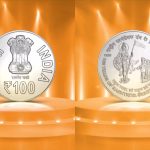The sporting rivalry between India and Pakistan has witnessed many heated moments, but the recent altercation involving Mohsin Naqvi has added an intense chapter to the narrative. The Pakistan Cricket Board (PCB) chairman clashed with Indian officials in what eyewitnesses described as a heated, almost unprecedented exchange. What was supposed to be a moment of diplomacy between cricket administrators spiraled into one of the ugliest confrontations in recent cricketing memory.
The Build-Up to Tensions
Cricket ties between India and Pakistan remain fraught with political undertones. Every administrative or on-field incident becomes magnified under the weight of history and national sentiment. In this case, Naqvi’s visit was framed as an opportunity to cool tensions. Instead, it ended up stoking them further.
Sources reveal that in the lead-up to the altercation, disagreements over match logistics, umpiring issues, and the controversial “handshake snub” in the India-Pakistan Asia Cup tie had already left tempers frayed. The PCB leadership was reportedly dissatisfied with how their grievances were addressed by the Asian Cricket Council (ACC), which is headed by BCCI’s Jay Shah.
The First Spark
According to those present, the clash began during a closed-door meeting after the match. Naqvi raised concerns over what he called “disrespect shown to Pakistan’s players.” Indian representatives countered sharply, arguing that the players’ refusal to engage in post-match handshakes was being misrepresented.
Witnesses claim the exchange quickly escalated. Naqvi allegedly accused Indian officials of “orchestrating humiliation,” while BCCI representatives pushed back, insisting the matter was being blown out of proportion for political mileage.
The Exchange Turns Heated
By this point, the conversation reportedly descended into shouting. Some in the room describe Naqvi as visibly upset, demanding accountability and even threatening to escalate matters at the ICC level. Indian officials, meanwhile, stood their ground, accusing Naqvi of politicizing sport.
What made the confrontation so striking was the public setting that followed. Instead of containing the argument within meeting walls, the verbal clash spilled into corridors where media representatives were present. Though no cameras captured the full extent, fragments of the shouting match were overheard, making it impossible to keep the matter quiet.
The Blow-by-Blow Details
- Initial Trigger: Naqvi pressed on the issue of India’s players walking away without formal handshakes after the Asia Cup tie.
- Indian Counter: Officials argued that post-match formalities are optional and not grounds for formal complaints.
- Accusations Fly: Naqvi accused India of deliberately showing disrespect, to which BCCI officials responded that PCB was “manufacturing controversies.”
- Escalation: Voices were raised, with Naqvi reportedly pointing fingers and slamming the table. Indian officials retorted sharply, telling him to “maintain decorum.”
- Public Fallout: As the argument moved outside, snippets were overheard by journalists, leading to rapid media coverage.
Reactions in Pakistan
Back home, Naqvi’s supporters praised him for standing up to India, portraying him as defending Pakistan’s honor in cricket diplomacy. State broadcasters highlighted his “firm stance,” while social media users launched trending hashtags hailing him for confronting Indian officials directly.
Indian Side Responds
In India, the mood was starkly different. Cricket administrators described the episode as a “theatrical stunt” aimed at deflecting from Pakistan’s defeats on the field. The BCCI maintained that sportsmanship should not be conflated with politics, and accused Naqvi of damaging the spirit of cricket.
International Reaction
The ACC and ICC found themselves in an awkward position. While no official statements condemned either side, there was concern within the cricketing fraternity about how administrative tensions were spilling over into public spectacles. Analysts warned that such incidents risked further derailing already fragile cricketing ties.
The Larger Context
The Naqvi incident cannot be seen in isolation. Cricket diplomacy between India and Pakistan has always been fragile. From the cancellation of bilateral tours to high-voltage World Cup encounters, the relationship oscillates between rare cooperation and prolonged standoffs. Naqvi’s outburst, many analysts suggest, may have been fueled as much by political compulsions back home as by cricketing grievances.
What’s Next
The fallout from the confrontation may not be immediate in terms of sanctions or official reprimands, but it has undoubtedly hardened positions. The BCCI is unlikely to soften its stance on bilateral cricket ties, while the PCB is expected to raise its grievances in international forums.
For cricket fans, the Naqvi vs India showdown is yet another reminder that the game between these two nations is never just about sport—it is about pride, politics, and power.














